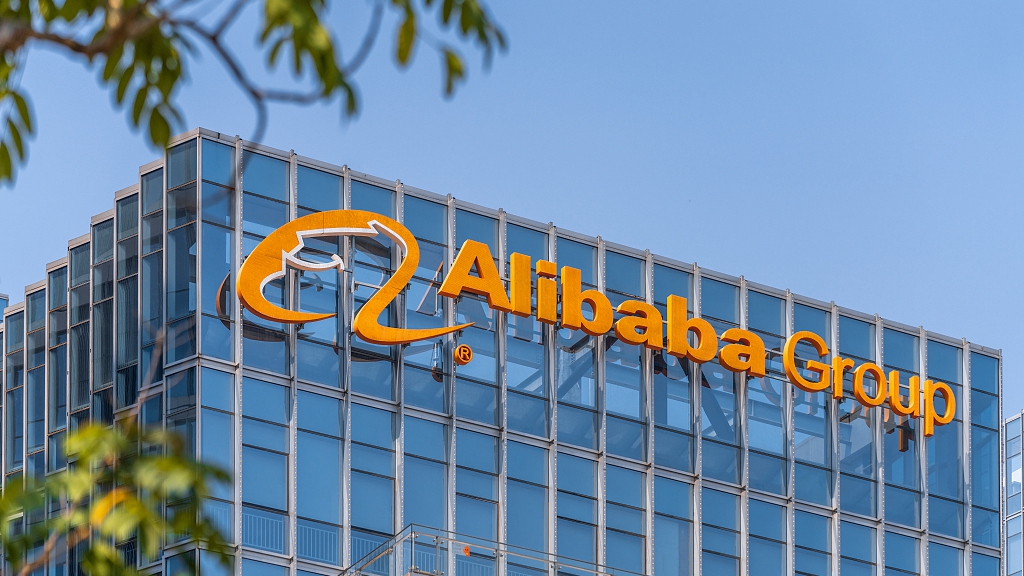
TLDR;
- Undervalued based on financial metrics.
- Track record of CCP on anti-globalization and dismantling Deng Xiaoping’s economic reforms.
- Politicians are actively discouraging the leadership of the company from rewarding (foreign) shareholders.
- Uncertain long shot on economic policies pursued by China as its almost impossible to foresee political risks, and it would be best to stay away from this stock.
Traditional Metrics
- P/E ratio of 9x at the time of writing, compared to a P/E of 41 for Amazon.com and a 49 P/E for MercadoLibre, Inc.
- Revenue FY’24 : $130.4 B (+8% y/y)
- EBIT FY’24 : $15.7 B (+13% y/y)
- EBIT Margin FY’24 : 12.0%
- Free Cash Flow FY’24 : $21.6 B (-9% y/y)
- FCF Margin FY’24 : 16.6%
- Solid financials since 4 yrs, still its down 70% from its historical peak.

Alibaba Cloud’s AI Bet
- Free Cash Flow decreased by 52% YoY due to heavy re-Investment in Alibaba Cloud infrastructure.
- Since last year in June ’23, Alibaba Cloud’s Qwen LLM model has reached over 90,000 enterprise deployment.
- Xiaomi has included Qwen’s Q&A capability in its smart assistant Xiao Ai found in smartphones and the new SU7 electric vehicle.
- This year, in Singapore, The company released the PAI-Lingjun Intelligent Computing Service, a hybrid platform for high performance computing.

Political Risk
1. Dengism between 1980s and 1990s in China
- Under leadership of Deng Xiaoping, China prospered economically which later known as Dengism.
- Dengism = Socialist market economy + reforms and opening up for foreign investment.
- Result = More than ~700 Million people were lifted out of poverty during 1980s and 1990s.
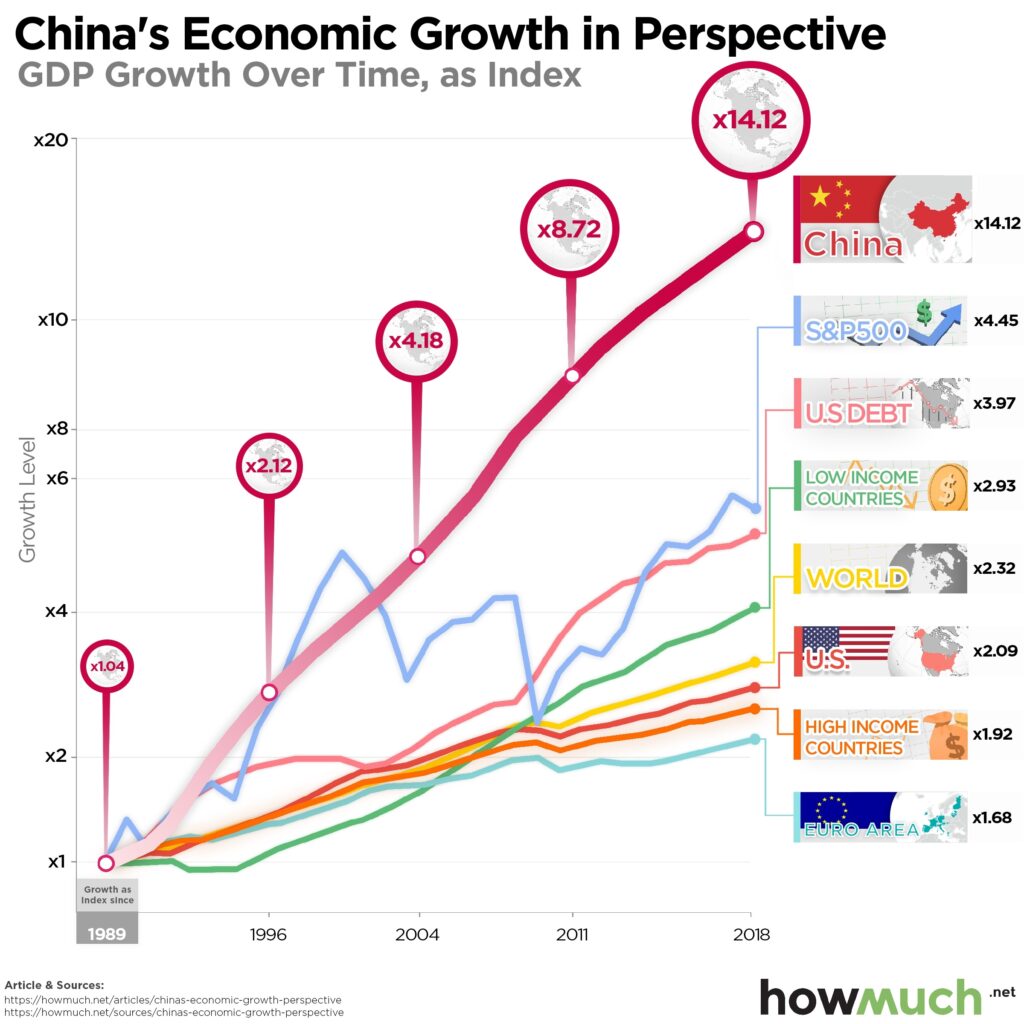
2. China opening to west for investment
- For foreign investors to invest in the country, Variable Interest Entity (VIE) structure was introduced in 2003.
- A Chinese firm forms an offshore company under VIE structure, often in the Cayman Islands. This offshore entity is given control of profits and decision-making of the local company.
- Still to date west can invest via VIE structure only.
- There is no legal structure in China that permits foreign ownership of local assets. Local legislation does not protect foreign shareholders either.
- Risk of escalating tension between China and West + CCP turning away from Dengism.
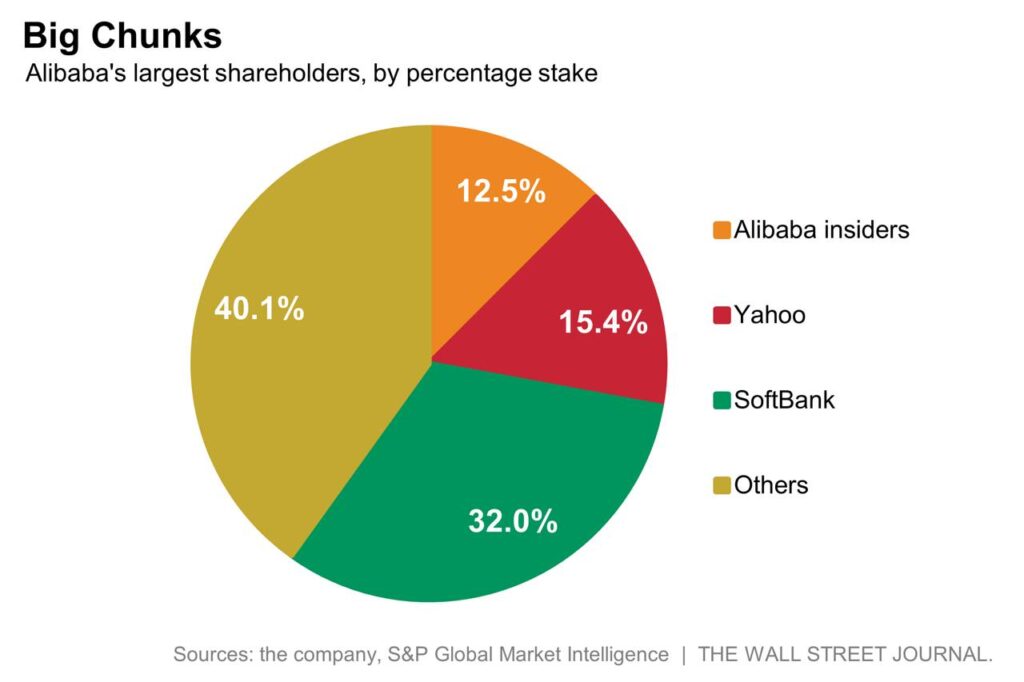
3. Xi Jinping Era
- After 3 decades of economic growth, Xi Jinping came into power in 2013.
- In 2017 CCP’s leader emphasized on governmental intervention and refusal of Deng’s economic policies, indicating “new era” for China.
- Later using Covid 19 as a reason, govt became more aggressive to have control over private companies
- Starting 2020, Chinese stocks have lagged far behind than worldwide markets.
- In late 2023, Xi Jinping urged once again private firms to be “rich and loving” in pursuing prosperity for all.
- Biden administration also started to impose tariffs and sanctions on china.
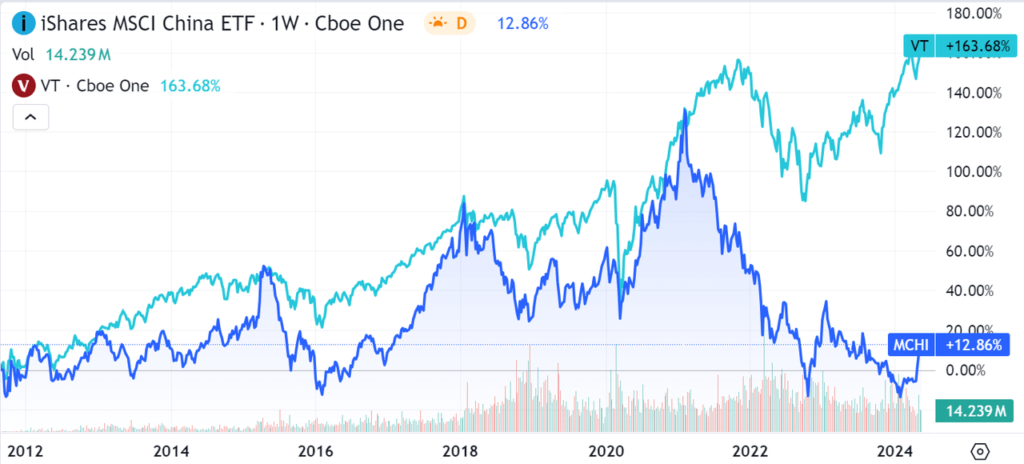
Impact on Alibaba
- To start with “New Era” Alibaba was choosen to be made example due to its strong international backing.
- After an antitrust case on Alibaba, lasting for a brief period, the firm incurred a $2.8 billion fine and was made to split into multiple legal entities.
- Company’s management is mandated by CCP to contribute its profits to their “common prosperity” projects and not to prioritize foreign shareholders.
- Since 2020, Jack Ma, the maverick founder of BABA, has not been seen in public physically.
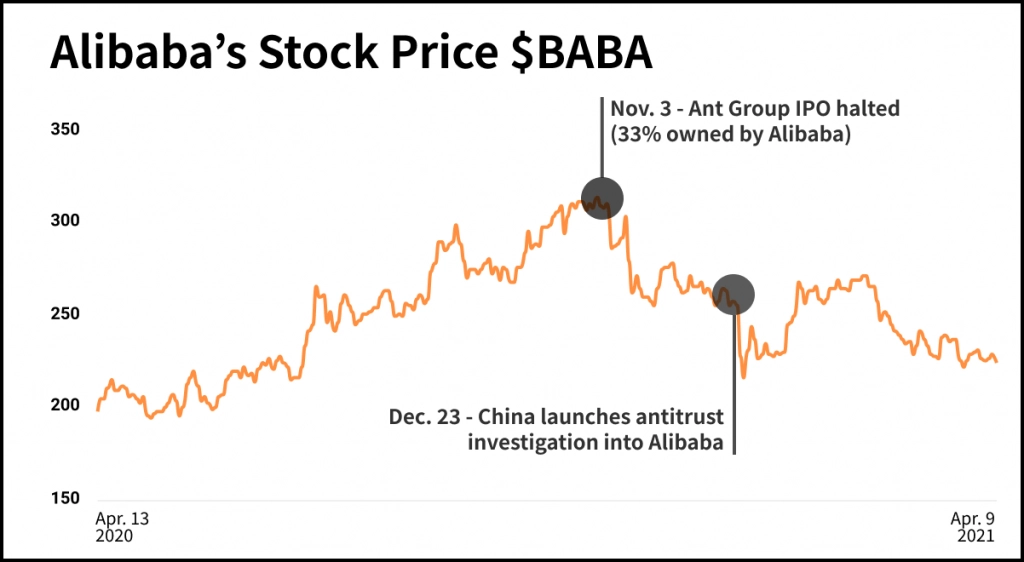
Contrarian Bet on BABA
- BABA with being profitable + Moat in cloud and e-commerce space in china = Solid.
- If CCP re-opens door for globalization, stock could do a 10X return.
- In FY 2024 Alibaba gave back to shareholders (Foreign + Local) about $16.5B via share buyback and paying dividends.
- Company paying juicer dividends to reward foreign shareholders without necessarily going against CCP can be considered.
- Due to unpredictable political landscape, investors can risk 2% of their portfolio with BABA.
2029 Valuation (Updated)
Assumptions :
- LTM Revenue: $129.48B
- 5Y Revenue CAGR: 7%
- 2029 Profit Margin: 15%
- 2029 PE Ratio: 14
- Shares outstanding: 2.378B
- Shares reduction: 6%/year
Valuation :
- Q2 2029 BABA SHARE PRICE = 129.48 * (1.07)^5 * 0.15 * 14 / [2.378 * (0.94)^5] = $219
- Discount rate for BABA as 12%. (China risks using an higher discount rate + quite conservative assumptions.)
- CURRENT SHARE PRICE: $75
- DISCOUNT RATE: 12%
- FAIR VALUE: $219 / (1.12)^5 = $124
- POTENTIAL UPSIDE: 65%
- EXPECTED RETURNS: 23.9%/year
- DIVIDEND YIELD: 1.34%
- MY RATING: Buy


